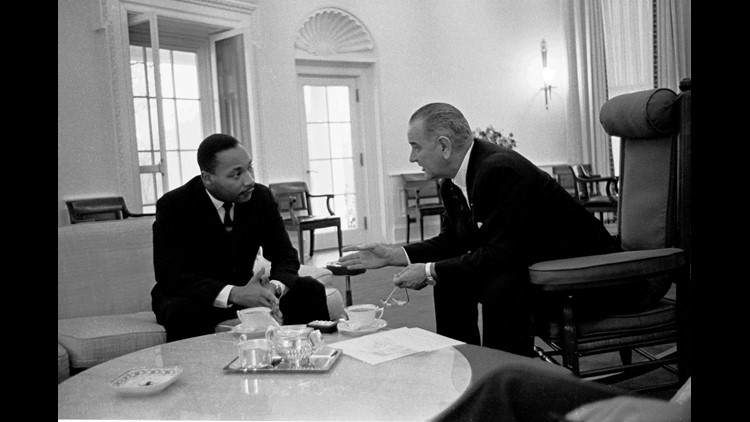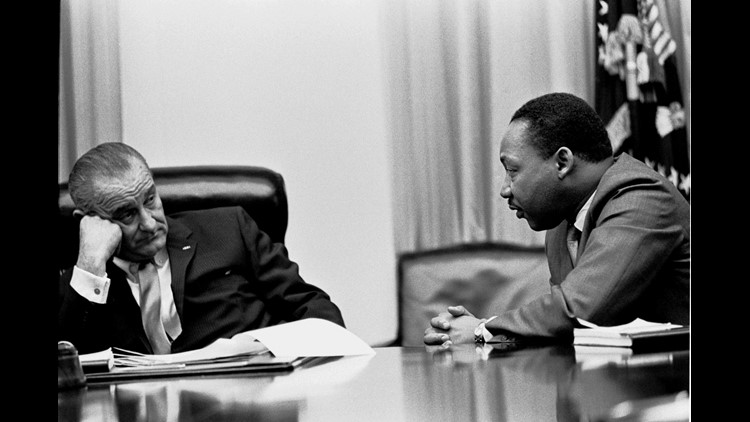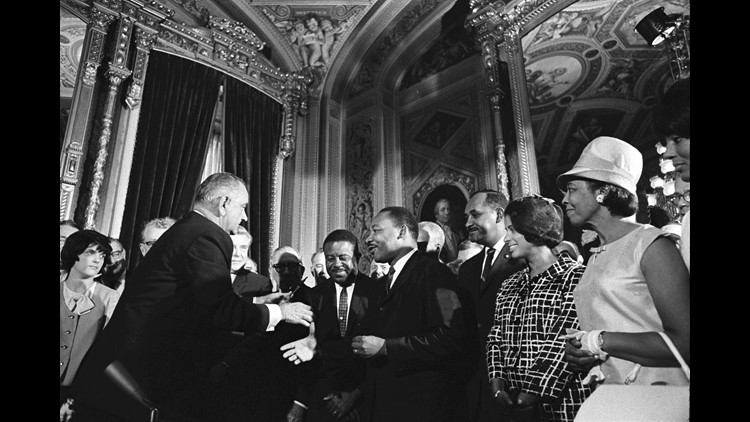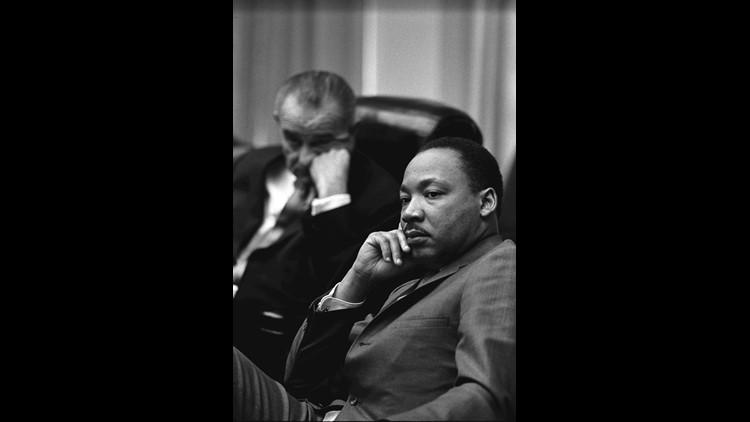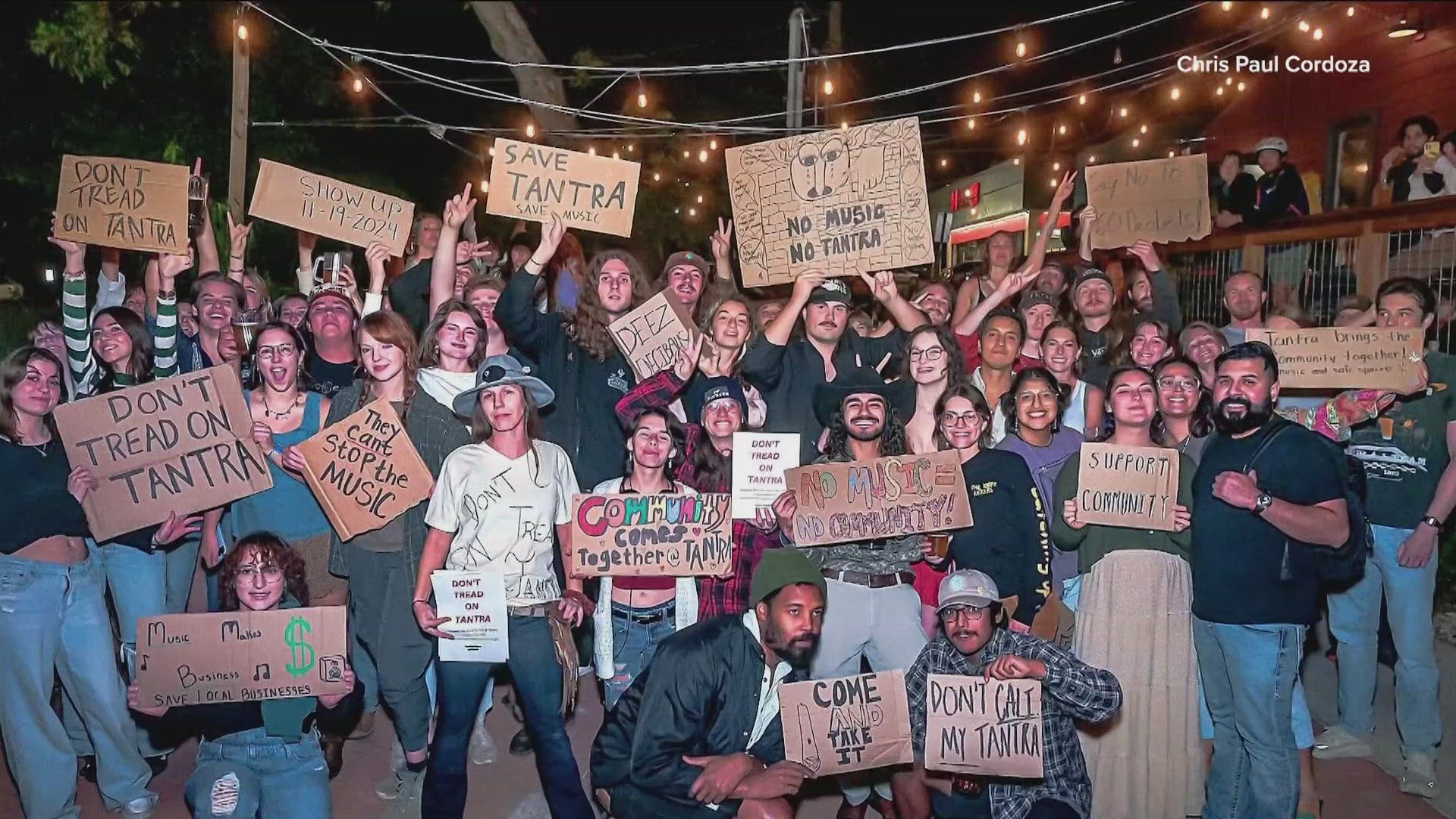AUSTIN -- On April 4, the 50th anniversary of the assassination of Dr. Martin Luther King Jr., the world is remembering his legacy. As we remember him, it's important to note his connection with Texas' own Lyndon B. Johnson.
On April 4, 1968, the civil rights leader was shot at the Lorraine Motel in Memphis, Tennessee, and pronounced dead after he was rushed to the hospital. The day after the assassination, President Johnson wrote a letter addressed to King's widow, Coretta Scott King, to express his condolences.
The letter, which was donated to the Lyndon Baines Johnson Library and Museum located here in Austin, reads in part, "We will overcome this calamity and continue the work of justice and love that is Martin Luther King’s legacy and trust to us."
RELATED:
According to the Washington Post, the letter made its public museum debut back in 2016 after it was donated to the LBJ Library by a private collector.

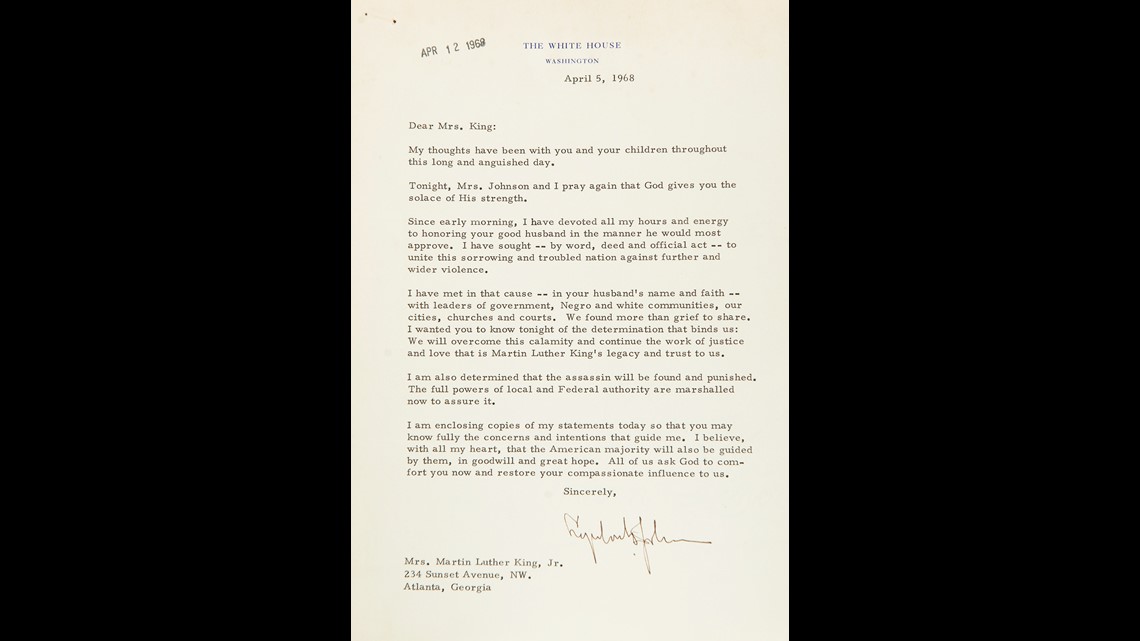
LBJ Library President Mark Updegrove described King and Johnson's relationship.
"Martin Luther King and Lyndon B Johnson were collaborators," he said. "They both had the goal of putting civil rights into law."
According to the official LBJ Library website, King worked closely with Johnson during his presidency and while Johnson was vice president to John F. Kennedy. In 1957, Johnson helped guide the passage of the Civil Rights Act of 1957.
The connection between LBJ and MLK
In a conversation between Johnson and King in November 1963 shortly after Johnson took office as the 36th president, he expressed to King how much he valued his efforts.
The following year in July of 1964, Johnson signed into law The Civil Rights Act, which ended segregation in public spaces and banned employment discrimination. Four years later in April of 1968, King was assassinated and Johnson held a meeting with civil rights leaders in the cabinet room. A few days later, Johnson signed the Civil Rights Act of 1968, which prohibited racial discrimination in the sale and renting of houses.

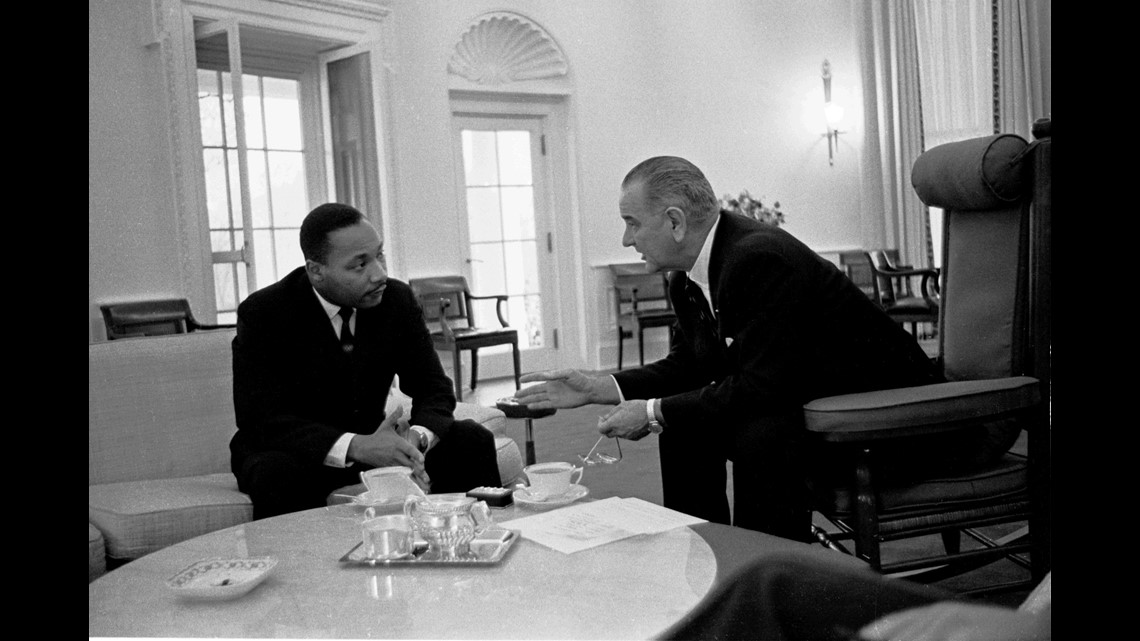
According to an article from Time, King wrote about his partnership with Johnson in his book "Why We Can't Wait," and how much he valued him:
I had been fortunate enough to meet Lyndon Johnson during his tenure as Vice President. He was not then a presidential aspirant and was searching for his role under a man who not only had a four-year term to complete but was confidently expected to serve out yet another term as Chief Executive. Therefore, the essential issues were easier to reach and were unclouded by political considerations.
His approach to the problem of civil rights was not identical with mine—nor had I expected it to be. Yet his careful practicality was, nonetheless, clearly no mask to conceal indifference. His emotional and intellectual involvement was genuine and devoid of adornment. It was conspicuous that he was searching for a solution to a problem he knew to be a major shortcoming in American life ...
King went on to commend Johnson's leadership and strength when it came to dealing with problems.
Today the dimensions of Johnson’s leadership have spread from a region to a nation. His recent expressions, public and private, indicate that he has a comprehensive grasp of contemporary problems. He has seen that poverty and unemployment are grave and growing catastrophes, and he is aware that those caught most fiercely in the grip of this economic holocaust are Negroes. Therefore, he has set the twin goal of a battle against discrimination within the war against poverty.
I have no doubt that we may continue to differ concerning the tempo and the tactical design required to combat the impending crisis. But I do not doubt that the President is approaching the solution with sincerity, realism and, thus far, with wisdom. I hope his course will be straight and true. I will do everything in my power to make it so, by outspoken agreement whenever proper, and determined opposition whenever necessary.
These words give insight into a relationship between two men who together fought for change and equality for all through the civil rights movement.

